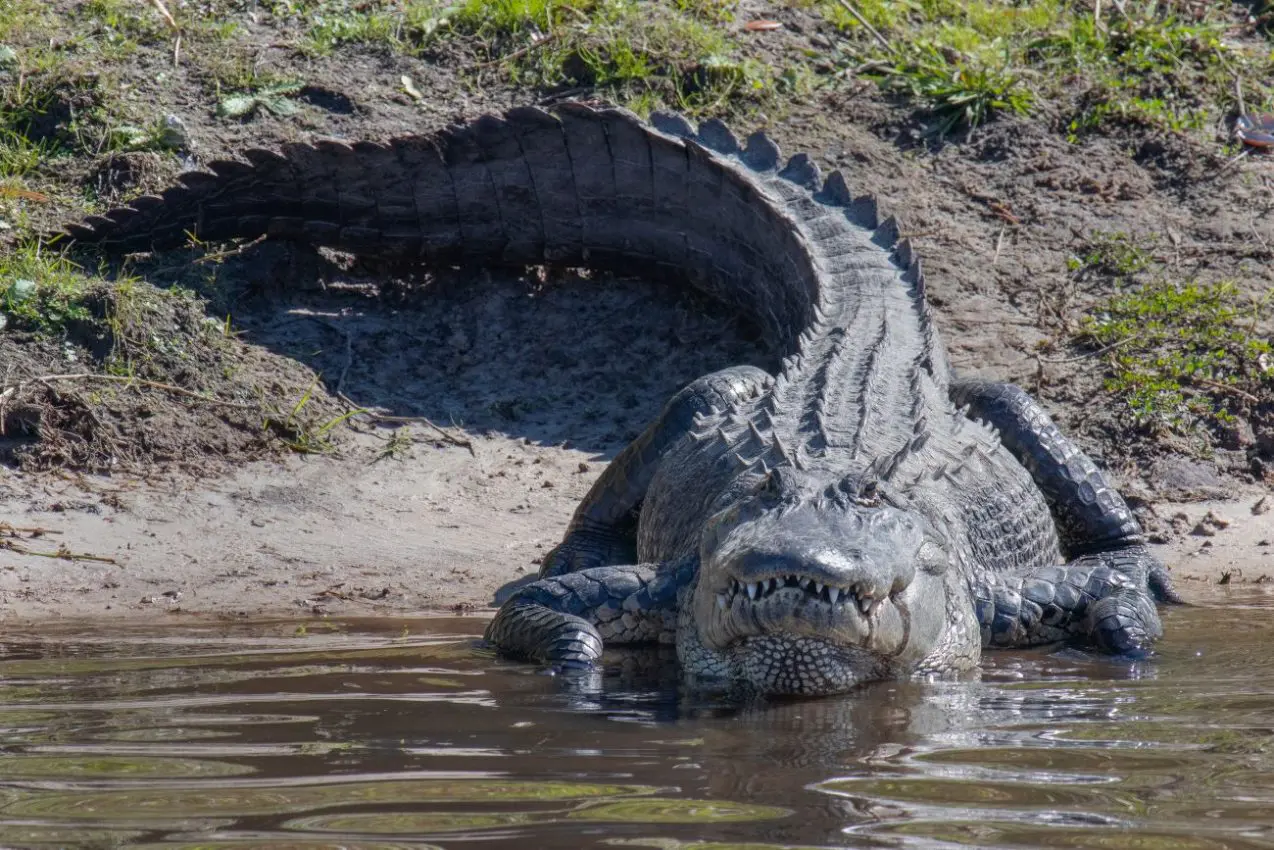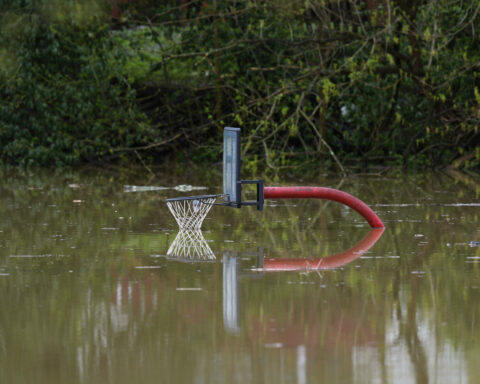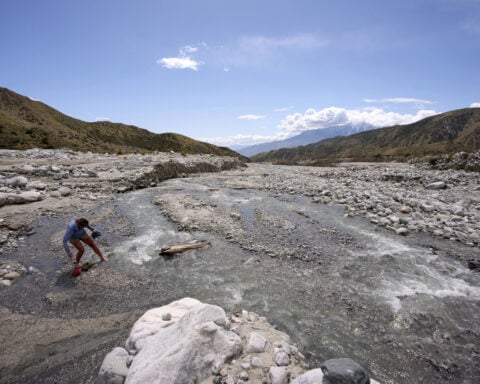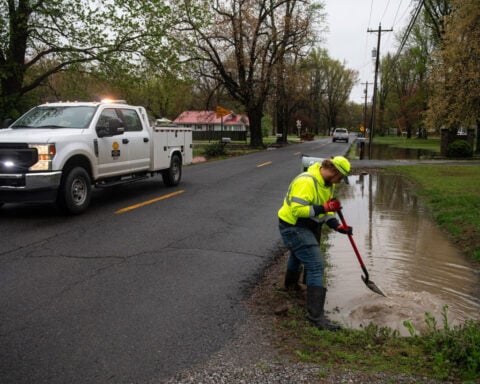A Florida woman was viciously attacked by a 9-foot alligator while snorkeling at a recreation area over the weekend, suffering bite wounds to her forehead. Marissa Carr was swimming at Alexander Springs near Ocala on Sunday when the massive reptile emerged and bit her head before retreating, she recounted to local media.
Incredibly, a photographer happened to capture graphic photos of the immediate aftermath showing blood streaming down her face as she exited the water. The terrifying encounter demonstrates the random danger alligators pose to humans even in designated swimming areas within their habitat.
Carr said she was snorkeling with a friend when she suddenly felt a forceful bump from behind. As she ripped off her mask, she came face-to-face with the gator lurking right at the surface. Her companion Shane witnessed the alarming attack unfold in an instant.
“I just heard a rush of water and I turned around to make sure she was okay. And I just saw the gator,” he described. “I saw her head in its mouth.”
Somehow Carr did not immediately realize she had been bitten as the brief mauling happened so quickly. But she soon noticed blood pouring from her forehead and intense pain in her neck where the alligator jaws had clamped down.
“It didn't hurt bad in the moment. And then like, as I was running back and like, I saw what it was, that's when it started hurting,” Carr explained. She considers herself extremely fortunate that the injuries were not more severe or even fatal.
Wildlife authorities were able to locate and capture the aggressive alligator responsible for the shocking daytime attack. The Florida Fish & Wildlife Conservation Commission said it was a 9-foot male nuisance gator that was removed from the recreation area.
Carr was wearing a full-face snorkel mask rather than just goggles, likely preventing more damage as her head was ensconced in protective plastic material. “Sounds bad, but it biting my head is probably the best place that it could have been because like, if it would have got my arm... I could have lost my arm or just like my life,” she reflected.
Remarkably, it was the second alligator incident to happen at Alexander Springs within a week. The previous Tuesday, a 79-year-old man “bumped” into a gator but was not bit while snorkeling. He sustained non-life-threatening injuries of undisclosed nature.
While alligator attacks are rare, Florida’s estimated 1.3 million wild alligators do pose an ever-present latent threat. Alexander Springs temporarily closed after last Sunday’s attack before reopening with warning signs. But Carr said she won't let the harrowing encounter deter her from swimming in the future.
FWC officials emphasize these tips when recreating in alligator habitat: keep a safe distance from any observed gators, never feed them, leash pets away from water's edge, and only swim during daylight without pets in designated areas. Still, attacks can happen seemingly anywherewithout warning, as this case underscores.
Alligators enter mating season in early summer, making them more aggressive and active. Experts advise particular caution during this period, when serious bites incidents typically spike. But year-round vigilance is warranted, as gators can strike in any season if provoked or opportunistic.
FWC urges caution but counsels that alligator attacks remain rare considering the vast number of human-gator interactions. Visitors to wilderness areas should remain alert while recognizing unlawful hunting and harassment drives more aggressive behavior.
Carr's frightening encounter reveals the random nature of alligator attacks. But she says it won't deter her from returning to the water in future. The passionate snorkeler knows inherent risks exist when swimming in the reptile's natural domain.
Her extraordinary survival offers lessons for coexisting safely with Florida's apex predator. Carr credits her full-face snorkel mask with preventing more grievous damage. The material protected her neck and face as the massive jaws bit down.
But she benefited equally from pure luck given the lightning speed, massive strength, and prime striking position of the lurking gator. A fraction of a second quicker, and the bite could have been instantly fatal or caused permanent debilitating injury.
Carr recognizes the attack could have gone much worse and feels grateful to escape with fairly minor wounds. Her case underscores the fine line between life and death from alligator bites contingent on split-second reactions.
While alligator attacks are unlikely, they can happen anytime in the blink of an eye. Carr's harrowing experience is a cautionary tale on the potential danger of swimming in Florida's alligator country. But with proper vigilance and precaution, citizens and wildlife can safely coexist in their shared environment.

 Trump has begun another trade war. Here's a timeline of how we got here
Trump has begun another trade war. Here's a timeline of how we got here
 Canada's leader laments lost friendship with US in town that sheltered stranded Americans after 9/11
Canada's leader laments lost friendship with US in town that sheltered stranded Americans after 9/11
 Chinese EV giant BYD's fourth-quarter profit leaps 73%
Chinese EV giant BYD's fourth-quarter profit leaps 73%
 You're an American in another land? Prepare to talk about the why and how of Trump 2.0
You're an American in another land? Prepare to talk about the why and how of Trump 2.0
 Chalk talk: Star power, top teams and No. 5 seeds headline the women's March Madness Sweet 16
Chalk talk: Star power, top teams and No. 5 seeds headline the women's March Madness Sweet 16
 Purdue returns to Sweet 16 with 76-62 win over McNeese in March Madness
Purdue returns to Sweet 16 with 76-62 win over McNeese in March Madness








